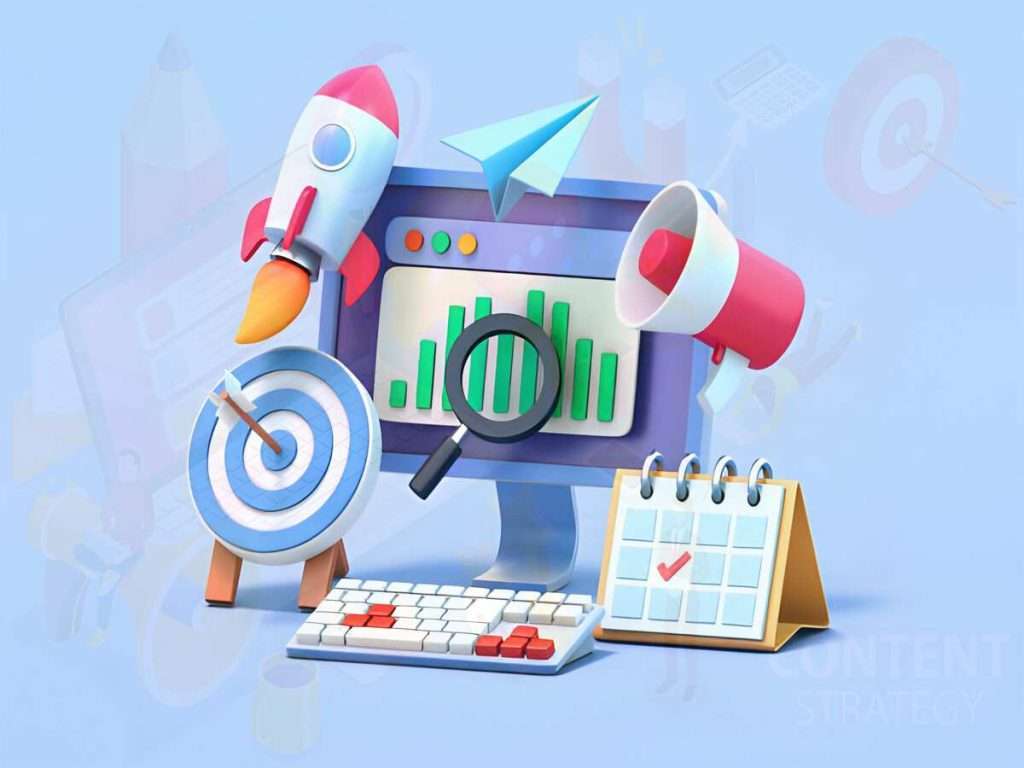As we step into the fast-paced realm of 2024, the landscape of digital marketing is poised for a transformative journey marked by cutting-edge trends that redefine industry strategies. One prominent trend expected to shape the digital marketing sphere is the rise of immersive experiences. Augmented Reality (AR) is anticipated to take centre stage, offering consumers engaging and personalized interactions that go beyond traditional advertising.
Another key player in the digital marketing arena for 2024 is Artificial Intelligence (AI). AI-driven tools and algorithms will continue to revolutionize how businesses analyze data, personalize content, and automate processes, ensuring more effective and targeted campaigns. With the increasing importance of sustainability, eco-conscious marketing is set to gain prominence as consumers align their values with brands committed to environmental responsibility.
In the ever-evolving landscape of social media, the integration of short-form video content is expected to dominate. Platforms like TikTok and Instagram Reels will continue to capture the attention of audiences, compelling marketers to craft concise and engaging video campaigns. Additionally, voice search optimization is slated to be a game-changer as more consumers rely on voice-activated devices, necessitating a shift in SEO strategies.
To stay ahead in 2024, digital marketers must embrace these trends, adopt innovative technologies, and refine their strategies to meet the dynamic expectations of today’s tech-savvy consumers. As the digital marketing landscape evolves, those who adapt and integrate these trends into their campaigns will undoubtedly lead the way in capturing the attention and loyalty of their target audiences.
Table of Contents
ToggleWhat is the future of digital marketing in 2024?
As we peer into the future of digital marketing in 2024, it becomes evident that the landscape is poised for remarkable transformations driven by emerging technologies and evolving consumer behaviours. One pivotal aspect that will shape the future is the increased integration of artificial intelligence and virtual reality. These technologies will not only refine data analysis but also enhance the personalization of marketing campaigns, ensuring that brands connect with their audiences in more meaningful ways.
Moreover, the rise of immersive experiences, fueled by augmented reality and virtual reality, is set to revolutionize digital marketing strategies. Brands will leverage these technologies to create engaging content, providing consumers with memorable and personalized interactions that transcend traditional advertising methods.
Sustainability will play a defining role in the future of digital marketing. As eco-consciousness continues to grow among consumers, brands that embrace and communicate environmentally responsible practices will resonate more strongly with their target audiences. This shift towards sustainable marketing reflects a broader societal trend, emphasizing the importance of ethical and socially responsible business practices.
Short-form video content will maintain its prominence, with platforms like TikTok and Instagram Reels driving engagement. Marketers will need to craft concise and visually appealing video campaigns to capture the attention of audiences in a world where attention spans are increasingly fleeting.
In essence, the future of digital marketing in 2024 is dynamic, with AI, immersive experiences, sustainability, and short-form video content taking centre stage. Success in this evolving landscape will hinge on marketers’ ability to adapt swiftly, harness new technologies, and resonate with the values and preferences of their target audience.
What is the trend in advertising in 2024?
As we delve into the advertising landscape of 2024, several key trends are poised to redefine the industry, steering it towards innovation and enhanced engagement. One prominent trend is the ascendancy of interactive and shoppable content. Advertisers are increasingly leveraging technologies like augmented reality (AR) and interactive video to create immersive experiences that enable consumers to engage with products directly.
Furthermore, data privacy and ethical advertising are gaining paramount importance. With increasing scrutiny of user data and privacy concerns, advertisers are prioritizing transparency and responsible data usage. This not only aligns with regulatory expectations but also builds trust among consumers, fostering stronger brand-consumer relationships.
Personalization, driven by advanced artificial intelligence (AI) algorithms, is another pivotal trend. Advertisers are harnessing the power of AI to analyze vast datasets and deliver highly tailored content to individual consumers. This move towards hyper-personalization enhances user experiences, ensuring that advertising messages resonate with the specific preferences and behaviours of each target audience.
In the realm of platforms, the metaverse is emerging as a new frontier for advertising. Brands are exploring opportunities within virtual spaces, creating immersive campaigns and virtual storefronts to connect with users in a novel and interactive manner.
In summary, the advertising landscape of 2024 is characterized by interactive content, a focus on data privacy, personalized experiences through AI, and the exploration of the metaverse. Advertisers embracing these trends will likely find themselves at the forefront of a dynamic and evolving industry.
What is the B2B trend in marketing in 2024?
In 2024, the B2B marketing landscape is undergoing a profound transformation, shaped by evolving technologies and changing buyer behaviours. One pivotal trend is the increased reliance on Account-Based Marketing (ABM). In this approach, marketers hyper-personalize their strategies, focusing on specific target accounts rather than broader audience segments. This allows for a more tailored and impactful engagement, fostering stronger relationships with key business clients.
Content marketing continues to be a cornerstone but with a shift towards interactive and immersive experiences. B2B marketers are incorporating augmented reality and virtual reality technologies to create engaging and informative content that goes beyond traditional methods. This trend not only captivates the audience but also facilitates a deeper understanding of complex B2B solutions and services.
Another key trend is the integration of artificial intelligence (AI) in B2B marketing strategies. AI-driven tools are being used to analyze vast datasets, predict buyer behaviour, and automate personalized communications. This not only streamlines marketing workflows but also ensures that B2B messages are precisely tailored to the unique needs of individual businesses.
The rise of virtual events and webinars continues to gain momentum in B2B marketing. As global connectivity increases, businesses are leveraging virtual platforms to host conferences, product launches, and networking events. This not only enables wider participation but also provides an efficient way for B2B companies to showcase their expertise and build meaningful connections.
In summary, the B2B marketing trends of 2024 revolve around the adoption of Account-Based Marketing, the infusion of interactive content, the integration of AI for personalization, and the continued prominence of virtual events. Collectively, these trends point towards a more dynamic, personalized, and technologically advanced B2B marketing landscape.
What does SEO look like in 2024?
As we step into 2024, the realm of Search Engine Optimization (SEO) is undergoing a paradigm shift shaped by evolving search algorithms, user behaviours, and technological advancements. One prominent facet is the increasing importance of user experience in SEO rankings. Search engines are placing higher significance on factors like page load speed, mobile-friendliness, and overall website responsiveness.
Voice search optimization is another critical aspect of SEO in 2024. As a result, optimizing content for natural language queries and conversational tones is becoming imperative for SEO success.
The role of Artificial Intelligence (AI) in SEO is expanding, with machine learning algorithms playing a crucial role in understanding user intent and delivering more accurate search results. AI-driven tools are helping marketers analyze vast amounts of data, identify patterns, and optimize content strategies to align with user preferences.
Video content is poised to dominate SEO strategies in 2024. Search engines are increasingly favouring video results, and marketers recognize the need to incorporate video content into their SEO strategies. From video snippets in search results to the optimization of video transcripts, SEO efforts are becoming more multimedia-centric to cater to diverse user preferences.
In summary, the future of SEO in 2024 revolves around enhancing user experience, optimizing for voice search, leveraging AI for insights, and embracing the prominence of video content.
How to use AI for digital marketing?
Leveraging Artificial Intelligence (AI) for digital marketing opens a realm of possibilities, enhancing efficiency, personalization, and overall campaign effectiveness. One key application is in data analysis. AI tools can process vast datasets at incredible speeds, extracting valuable insights into consumer behaviour, preferences, and trends.
Machine learning algorithms analyze user interactions and behaviors, enabling the creation of highly personalized and relevant messages. From customized email campaigns to dynamically adjusting website content, AI ensures that each consumer interaction is tailored to maximize engagement.
Chatbots powered by AI are transforming customer interactions. These intelligent bots can handle routine queries, provide instant responses, and even engage in natural language conversations.
By analyzing historical data, AI algorithms can forecast future trends, identify potential leads, and optimize advertising budgets.
Moreover, AI contributes to automating routine tasks, streamlining workflows, and enhancing the overall efficiency of digital marketing processes. Whether it’s automating social media posting schedules, analyzing competitor strategies, or managing ad placements, AI-powered automation allows marketers to focus on strategic decision-making.
In essence, integrating AI into digital marketing strategies empowers marketers to harness the full potential of data, personalize interactions, automate tasks, and stay ahead of market trends, ultimately leading to more effective and impactful campaigns.






